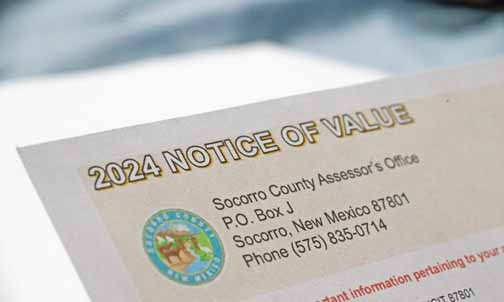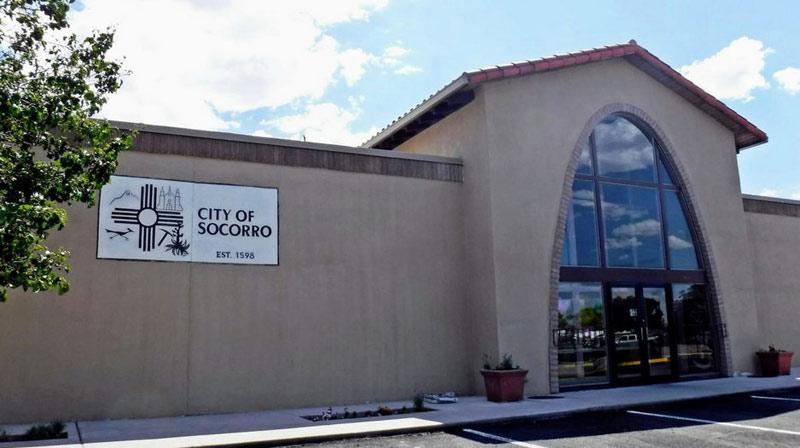Natural gas customers in Socorro saw a spike in their bills for January, and the city says the costs may not go down for another couple of months.
“It’s pretty much going the way it was expected,” Socorro City Administrator Donald Monette said. “We haven’t increased our overhead. It’s just the variable cost of fuel prices, making the operation of the department very expensive.”
The major causes are supply and demand, which can get complicated by numerous factors.
“Supply and demand is coupled with capacity because the pipelines are not big enough to supply all the demands that they need. That’s one reason.”
He said another factor is an overall trend to back off from coal-generated electricity, and a movement to use natural gas.
“So again, back to supply and demand,” he said. “Producing energy is putting a burden on the natural gas system that cannot already supply enough. Demand is through the roof. Even now the U.S. is shipping natural gas to Europe because Russia is not supplying what it normally does. It’s a universal market.”
Socorro’s gas is delivered via pipeline from Texas, which feeds not only New Mexico but Arizona and California.
“We buy the gas from Shell, and El Paso Natural Gas transports it to us,” he said. “So, there are two costs: the cost of purchasing it and the cost of transporting it.”
Even so, one cost is going down.
“Starting in January this year, believe it or not, transportation costs were going down 62 percent, but that’s just the transportation costs, which are minimal compared to the cost of fuel,” he said. “However, one of the pipelines at El Paso had an issue with one of their valves, so again it’s supply and demand. Demand didn’t go down, but the supply chain was broken.”
One perception from some customers is that the city is causing it.
“We have not raised how much it takes to operate the system,” he said. “For example, say it’s a dollar a gallon, and we have a five-cent markup. We haven’t increased our markup with the market increase. We’re maintaining our spread.”
January through March are the highest months of the year, and as predicted in January, prices are about three or four times above average.
“Our January bill, compared to last year’s is 260 percent higher,” he said. “And we’re about two months behind, so if we get billed for January for $622,000 like we did, we won’t see that money come back into our budget until April. It’s a cash flow issue, and it does make things tight.”
Finance Director Ruby Lopez said she’s never seen a bill to the city that high.
“I went back to 2008, and even the percentages of the increase are higher,” Lopez said.
She said customers have voiced their concerns.
“We have been bombarded with calls, but we’re taking our time and working with the customer,” Lopez said and emphasized the importance of making a payment on time. “We’re telling them to at least pay what they can but make sure and make a payment. And hopefully, the gas is going to go down, and they can catch up.
“They’re kind of scared they’re going to get turned off,” she said. “We’re not turning anybody off. With a lot of people that we talk to, once we explain it to them, they understand because they’ve seen it on the news. Everything is going up.”
Nevertheless, the city is maintaining an austere budget, Monette says.
“We haven’t increased the overhead, “ he said. “Just the variable cost of fuel prices, making the operation of the department very expensive.”
Monette reminds customers the most effective tool the city offers to help people with their budget is budget billing, “so people don’t get hit with a low bill one month and a high bill the next month.
“We average the previous 12-month usage and the customer pays the same each month, and then once a year it gets corrected,” he said. “If they’ve overpaid, we give them a refund and if they’ve underpaid, they’ll be charged a little bit more and start the process all over again.”
However, no credit was paid out this year, according to Lopez.
“Usually, I have probably a good $12,000 in credit that’s returned to customers,” she said. “This year I didn’t have a one. Everybody ended up paying money and I was kind of like, ‘what’s going on?’ The gas is going up.”
Budget billing is based on the customer’s previous year’s usage, so it still makes sense, she said.
“Historically, prices should start coming down, hopefully, in April,” Monette said. “Demand notwithstanding.”


















